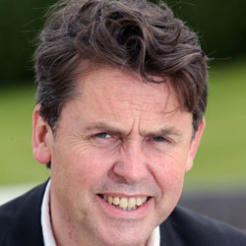A research centre in Wales has been awarded a grant of more than £7m from the Economic and Social Research Council to investigate the changing nature of civil society.
The Wales Institute of Social & Economic Research, Data and Methods (Wiserd), which is based at the University of Cardiff, was one of four grant recipients awarded funding from a total pot worth £29m.
The ESRC, which is funded through the Department for Business, Innovation and Skills, said the grants are for research that will influence and shape future policy.
Professor Ian Rees Jones, director of Wiserd, said the centre's research will aim to understand the changing nature of civil society at a time of “profound social and economic change”.
It will involve using Wales with its devolved government as a “laboratory for social science” and include work with partner institutions and researchers from the universities of Edinburgh, Sheffield and Ulster, he said.
Rees Jones told civilsociety.co.uk that the centre was interdisciplinary and sociologists, economists and political scientists would work on the research, with the funding spread over five years.
He said the research into civil society would fall into different themes including one on local communities.
“We are undertaking research projects into how civil society operates at very local levels and how global changes affect civil society at a local level for example this could be how environmental changes might prompt protest groups relating to wind farms,” he said.
Rees Jones said this work would also look at migration and how minority groups are engaged in civil society. It will also explore the impact of national policy on civil society at a local level for example the government’s localism drive and how it compares around different regions of the UK.
The research will also explore how charities and voluntary organisations are involved in the provision of public services and how that might be changing sector organisations, he said.
Researchers will also look at levels of trust in institutions, he said, comparing different regions of the UK with comparative regions in Germany and France.
He said institutions ranged from charities to government departments and the extent to which they relate to each other.
The economics aspect of the research will consider austerity and inequalities, Rees Jones said. “How social enterprises, cooperatives, and non-profits organisations are contributing to the economy,” he said. “It will include a series of projects looking at social capital and social cohesion.”
Rees Jones said the centre would also be making its data and research facilities open to civil society organisations over the next five years.
“We hope very much to be providing evidence on the way civil society is organised and how it reacts to policies. We hope the work will influence third sector organisations more widely and policy at different levels of government from local to national.”









